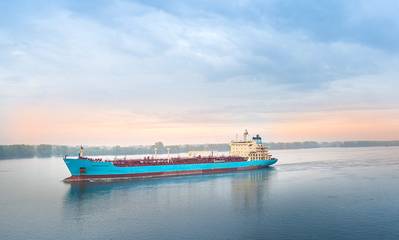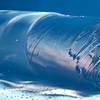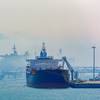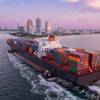Shipping Groups Tap Algorithms to Cut Carbon Emissions
Leading shipping group Maersk Tankers is investing tens of millions of dollars in digital technology to speed up cuts in carbon emissions across the industry, its chief executive told Reuters.
Global shipping accounts for nearly 3% of the world’s CO2 emissions, putting the sector under pressure to clean up. About 90% of world trade is transported by sea.
Maersk Tankers, which commercially manages the world’s largest fleet of more than 220 product tankers, has invested $19 million in the past two years and has earmarked a further $12 million in 2021 to boost ship performance and reduce emissions through the use of digital technology.
“There is a like for like cost saving for every tonne of CO2 that we save,” CEO Christian Ingerslev said.
Last year Maersk Tankers launched standalone business ZeroNorth, which uses algorithms that factor in market rates, future weather conditions and bunker prices to guide operators on the optimal route and speed for their vessel.
So far, 1,500 vessels are using ZeroNorth’s Optimise platform including Maersk Tankers, commodities trader Cargill - another investor in the venture - and Danish shipping group UltraBulk.
ZeroNorth has a five-year target of 6,000 vessels, which if achieved would translate into cuts of 9 million tonnes of CO2 annually, Ingerslev said.
Jan Dieleman, president of Cargill’s ocean transportation business, told Reuters separately that 500 vessels it charters will use ZeroNorth, enabling the company to reduce its annual bunker fuel consumption by around 19,000 tonnes, saving nearly $10 million every year and reducing CO2 emissions by an estimated 60,000 tonnes.
An estimated 33,000 ships are part of the wider ‘tramp’ fleet of tankers and dry bulk vessels targeted by ZeroNorth. They do not run on fixed voyage schedules like container lines, instead sailing around the world when they conclude charters, which adds to fuel inefficiencies and higher CO2 emissions.
(Editing by Kirsten Donovan)











